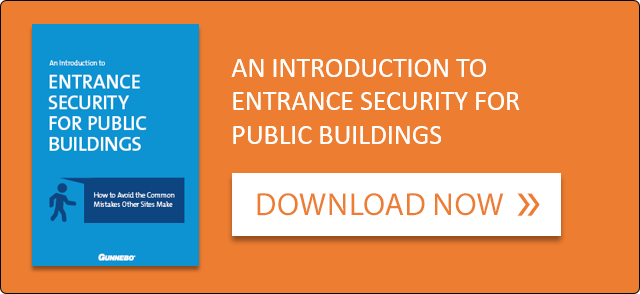One of the major entrance security mistakes public buildings make is failing to apply different levels of security to different parts of the site. This post addresses how to deal with this problem by applying a zonal approach.
Why Security Managers Should Think Zonal for Public Sites
Strike a Balance
Effective entrance security for public access buildings isn’t as simple as it sounds. Whether it’s a library or a museum, a transport hub or a town hall, there’s a wide range of risk factors to take into consideration, from theft and vandalism to civil unrest and terrorism.
Security managers have to run systems which can control and regulate the flow of large volumes of people. The goal: to achieve the appropriate level of security without creating queues or hindering passage for authorised individuals.
It's Not "Access All Areas"
Unlike office blocks and government facilities, public access buildings are open to anybody, making it a real challenge.
Most public buildings have areas which are not intended to be accessed by the public at all. In some cases, such as in hospitals, these areas outnumber free access parts of the building by a significant margin.
That is when it pays to "think zonal".
Set Clear Rules for Each Zone
Starting outside and moving inwards, zonal security is designed to allow access to specific areas of a site to individuals who have a legitimate reason to be there and prevent access to all other groups.
First, split the site into three superzones. This is to control access to:
- The exterior perimeter of the building
- The building itself
- The various areas inside the building
Second, it is important to identify who should be allowed in which interior area and define rules accordingly.
Third, consider when each zone should be open or closed and incorporate timing into the rules as well.

For more advice on how to avoid common entrance security mistakes, download our PDF guide:
An Introduction to Entrance Security for Public Buildings.
Read more about how our entrance security solutions give you control over the movement of individuals to, from and around your site.
